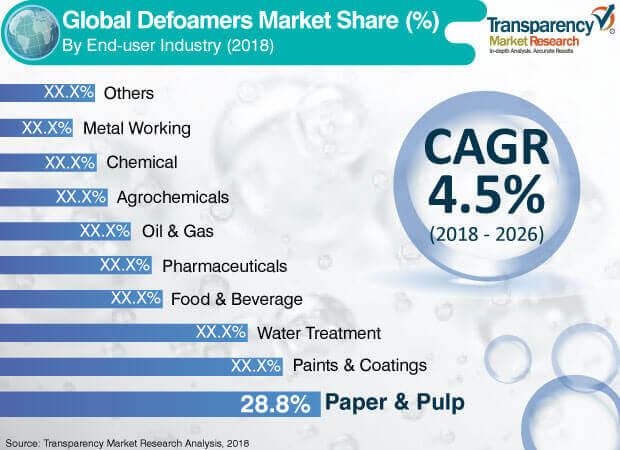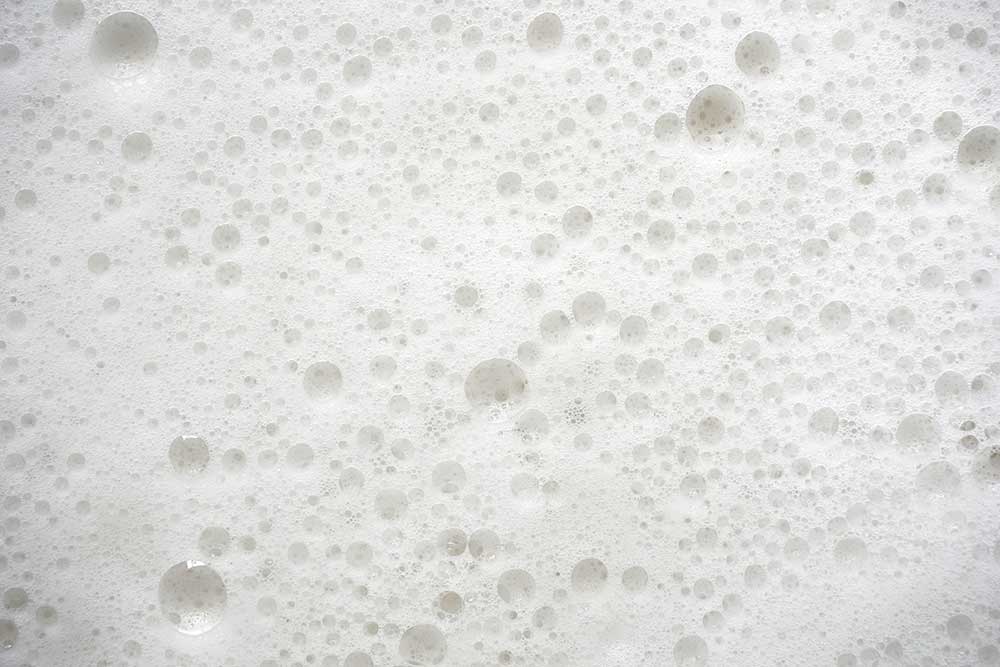The Role of Defoamers in the Chemical and Food Processing Industries
The Role of Defoamers in the Chemical and Food Processing Industries
Blog Article
Discover the Leading Benefits of Making Use Of Defoamers in Industrial Processes
The use of defoamers in industrial procedures presents an array of compelling advantages that can improve functional effectiveness and item high quality. By effectively managing foam production, these agents not just enhance product flow yet also add to significant expense decreases and improved sustainability. Their application extends multiple markets, which questions concerning their role in mitigating ecological impact while making sure regular output. Comprehending these benefits is important for sectors aiming to fine-tune their procedures. The implications of embracing defoamers might be more profound than at first regarded. What specific benefits could your company harness?
Boosted Refine Efficiency
Optimizing industrial processes frequently includes dealing with lathering problems, which can impede operational effectiveness. Foam formation can disrupt the appropriate functioning of equipment, decrease the effective usage of resources, and complicate the monitoring of critical parameters. By implementing defoamers, sectors can properly minimize these concerns, causing streamlined operations and improved efficiency.
Defoamers work by destabilizing the foam framework, permitting fast collapse and considerable reduction in foam quantity. This activity not only enhances the circulation of products through equipment, such as pipes, reactors, and mixers, but additionally lessens disruptions triggered by foam overflow. Tools downtime is minimized, allowing for an extra constant and efficient manufacturing process.
In addition, using defoamers can bring about minimized energy usage. With less foam to handle, pumps and compressors can run more effectively, resulting in lower functional costs and a total improvement in procedure throughput. Ultimately, the critical use defoamers not just addresses prompt lathering obstacles but likewise adds to a much more reliable industrial environment, cultivating a competitive benefit in a requiring market.
Improved Product High Quality
The assimilation of defoamers in industrial processes plays a critical role in improving item top quality. By effectively managing foam development, defoamers contribute to the uniformity and harmony of end products. Extreme foam can cause aeration, which negatively influences the structure and security of formulas, particularly in sectors such as food and drugs, finishings, and beverages.

Furthermore, defoamers facilitate far better mixing and diffusion of components, resulting in homogeneity in solutions. This is necessary in applications where exact ingredient proportions are vital for performance and safety and security. Additionally, the removal of foam can decrease the risk of contamination throughout production, additional protecting item integrity.
Inevitably, by improving item quality, defoamers not just enhance customer satisfaction yet also strengthen brand track record. Their duty in preserving high-quality requirements emphasizes their significance in modern-day industrial processes.
Price Reduction Benefits
Applying defoamers in industrial processes can bring about significant expense decrease advantages. By effectively managing foam development, defoamers minimize product loss during production, therefore optimizing material usage. This decrease in waste converts directly into lower basic material prices, boosting overall operational effectiveness.
In addition, using defoamers can decrease energy consumption. Extreme foam can impede tools efficiency, bring about increased energy requirements to preserve production levels. By alleviating foam, defoamers promote smoother procedures, permitting equipment to run extra successfully and reducing energy expenditures.

Furthermore, defoamers can shorten processing times. By utilizing defoamers, industries can simplify their processes, leading to faster turn-around times and enhanced throughput.

Environmental Impact Reduction
In industrial processes, using defoamers plays an essential function in mitigating ecological impacts connected with foam generation. Foam can result in considerable functional inefficiencies, resulting in boosted exhausts and waste generation. By properly controlling foam, defoamers help preserve procedure effectiveness, thus lowering the total ecological footprint of operations.
Moreover, extreme foam can overflow containment systems, resulting in spills that might pollute dirt and water sources. Defoamers help reduce this risk by guaranteeing that lathering does not surpass recommended limitations, promoting compliance with environmental policies. This positive Read More Here method not only safeguards environments however likewise improves the sustainability of industrial practices.
Additionally, using defoamers can decrease power usage why not look here in different processes. defoamers. Lowering foam development lessens the demand for extra energy-intensive procedures, such as enhanced agitation or pumping, which might or else be needed to handle foam. The fostering of defoamers lines up with broader sustainability objectives by promoting energy efficiency while decreasing the carbon impact of industrial tasks.
Eventually, integrating defoamers right into industrial procedures is a calculated step that sustains ecological stewardship and accountable resource monitoring.
Flexibility Throughout Industries
Across various markets, defoamers demonstrate impressive flexibility, adjusting to the particular requirements of varied applications. In the food and beverage sector, for example, defoamers are essential to keeping product top quality by avoiding foam development during handling, which can influence structure and flavor. In the pharmaceutical market, defoamers make certain the stability of formulas, boosting product effectiveness and uniformity.
In the chemical manufacturing go to these guys realm, defoamers assist in smoother procedures by reducing foam in response vessels, hence improving yield and lowering downtime. The paper and pulp market depends on defoamers to enhance the effectiveness of pulp handling and paper manufacturing, ensuring ideal item honesty. In addition, in wastewater treatment facilities, defoamers play a crucial duty in managing foam throughout oygenation procedures, leading to improved treatment results.
The adaptability of defoamers expands to the oil and gas sector, where they assist in managing foam in drilling fluids and manufacturing procedures. By customizing solutions to meet specific industry requirements, defoamers act as important tools that improve operational efficiency, item top quality, and total procedure performance throughout a wide variety of markets. Their flexibility emphasizes their worth in contemporary industrial applications.
Final Thought
To conclude, the usage of defoamers in industrial procedures provides various advantages, consisting of improved efficiency, improved item high quality, significant cost decreases, and favorable environmental influences. Their capability to efficiently regulate foam development contributes to functional continuity and source optimization. Moreover, the convenience of defoamers throughout diverse sectors highlights their critical duty in promoting lasting methods and productivity. The assimilation of defoamers represents a critical method to resolving difficulties related to foam management in numerous manufacturing settings.
Ultimately, the calculated usage of defoamers not just addresses immediate foaming difficulties yet additionally contributes to a more effective industrial ecological community, cultivating an affordable advantage in a demanding market.
In industrial processes, the use of defoamers plays a vital duty in mitigating ecological influences linked with foam generation. By effectively controlling foam, defoamers help maintain procedure performance, thereby reducing the overall environmental footprint of operations.
Additionally, in wastewater therapy centers, defoamers play an essential duty in regulating foam during aeration processes, leading to better therapy end results.

Report this page